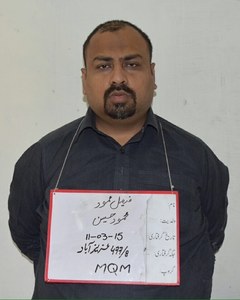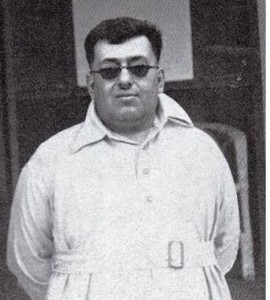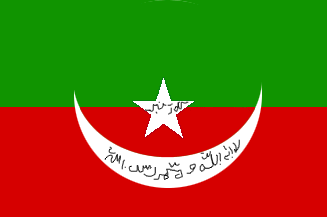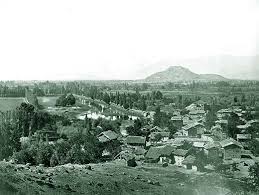By: Aasef Chauhdry
The history of Kashmir is full of bloody accounts of killings, tortures and rapes of the innocent Muslims at the hands of the brutal Indian forces and the corneas of Maharaja Hari Singh. How can one forget the ruthless and heinous killing of over 2.5 lakh Kashmiri Muslim immigrants on 6 November 1947 in Jammu and surroundings? During the partition of the Sub-continent, the people of the state of Jammu and Kashmir (J&K) which comprised Muslim majority decided to join Pakistan according to the British-led formula, however, Dogra Raja Hari Singh, a Hindu who was ruling over the J&K, in connivance with the Indian Prime Minister Jawaharlal Nehru and Governor General Lord Mountbatten, treacherously joined India.
That gory tale never ended and so did the sordid stories of Indian brutalities against the inopportune Kashmiris until the recent wave death and tortures by the forces in the valley that killed scores of unarmed Kashmiris who were protesting against the death of a young hero Burhan Wani. Amidst the sleeping world the Pakistanis and Kashmiris all over the world protested against the current wave of brutalities. Pakistani nation is observing Black Day on July 20, 2016 to express solidarity with their Kashmiri brethren who are being subjected to worst brutalities in Indian-occupied Kashmir by Indian armed forces. Rallies and functions are being held across Pakistan and Azad Kashmir to draw attention of the world community towards the burning issue of Kashmir. The officials are wearing black arm bands while performing their duties to express political, moral and diplomatic support to Kashmiris during working hours. Special prayers would be offered for the departed souls of martyred Kashmiris after Zohar prayers for the Shuhada of Kashmir. The call to observe black day on July 20 was made national leadership after tensions in the valley escalated following killing of Burhan Wani, a freedom fighter.
Kashmiris until the recent wave death and tortures by the forces in the valley that killed scores of unarmed Kashmiris who were protesting against the death of a young hero Burhan Wani. Amidst the sleeping world the Pakistanis and Kashmiris all over the world protested against the current wave of brutalities. Pakistani nation is observing Black Day on July 20, 2016 to express solidarity with their Kashmiri brethren who are being subjected to worst brutalities in Indian-occupied Kashmir by Indian armed forces. Rallies and functions are being held across Pakistan and Azad Kashmir to draw attention of the world community towards the burning issue of Kashmir. The officials are wearing black arm bands while performing their duties to express political, moral and diplomatic support to Kashmiris during working hours. Special prayers would be offered for the departed souls of martyred Kashmiris after Zohar prayers for the Shuhada of Kashmir. The call to observe black day on July 20 was made national leadership after tensions in the valley escalated following killing of Burhan Wani, a freedom fighter.
India occupied two third of the territory of Jammu and Kashmir known as IOK, whereas one third area was liberated by local Muslims as Azad Jammu and Kashmir. Since then, India has been suppressing the innocent people of Indian Occupied Kashmir (IOK) through mass extra judicial killings, forced disappearances at the hands of forces, gang rapes, indiscriminate use of force and torture, firing on demonstrations, custodial killings, encounters and detentions etc.Since1989, over 50,000 (according to some other reports nearly 100,000) Kashmiri people have been killed during the ongoing conflict) State Human Rights Commission (SHRC) has found 2,730 bodies buried into unmarked graves scattered all over Kashmir believed to contain the remains of victims of unlawful killings by Indian security forces.
 If we look back at history of Kashmir then every single day of their lives can be declared as a black day. About 59 years back as a part of pre-planned plot, on November 5, 1947, announcements were made everywhere in Jammu, asking Muslims to assemble in police lines where from they would be sent to Pakistan. On November 6, Jammu Muslims including men women and children were seemingly dispatched towards Pakistan in trucks, nevertheless, before they could reach the destination, Indian army, forces of Maharaja and Hindu Mahasabai goons and extremists at Samba Reasi and other places martyred them in gruesome manner. Thus, over 2.50 lakh Muslim inmates of Jammu city and adjoining areas were killed through a mass murder plan which could be termed as the holocaust of the subcontinent. As it was expected, the huge deaths had stunned the world and the ‘Time” magazine, in its November 47 publication also pointed out the figure of 2, 50,000 deaths of Jammu people.
If we look back at history of Kashmir then every single day of their lives can be declared as a black day. About 59 years back as a part of pre-planned plot, on November 5, 1947, announcements were made everywhere in Jammu, asking Muslims to assemble in police lines where from they would be sent to Pakistan. On November 6, Jammu Muslims including men women and children were seemingly dispatched towards Pakistan in trucks, nevertheless, before they could reach the destination, Indian army, forces of Maharaja and Hindu Mahasabai goons and extremists at Samba Reasi and other places martyred them in gruesome manner. Thus, over 2.50 lakh Muslim inmates of Jammu city and adjoining areas were killed through a mass murder plan which could be termed as the holocaust of the subcontinent. As it was expected, the huge deaths had stunned the world and the ‘Time” magazine, in its November 47 publication also pointed out the figure of 2, 50,000 deaths of Jammu people.
That was not one occasion. In fact the Indians have a black track record of killings the innocent Kashmiris, before and after 6 November 1947, in the burning valley. According to a report on human rights violations in the Indian Occupied Kashmir, since 1989, there have been deaths of 1,00000 innocent Kashmiris, 7,023 custodial killings, 1,22,771 arrests, 1,05,996 destruction of houses or buildings, 22,776 women widowed, 1,07,466 children orphaned and 10,086 women gang-raped/molested. Besides Human Rights Watch, in its various reports, Amnesty International has also pointed out grave human rights violations in the Indian controlled Kashmir, indicating, “The Muslim majority population in the Kashmir Valley suffers from the repressive tactics of the security In its report on July 2, 2015, the Amnesty International has highlighted extrajudicial killings of the innocent persons at the hands of Indian security forces in the Indian Held Kashmir. The report points out, “Tens of thousands of security forces are deployed in Indian-administered Kashmir.
The Armed Forces Special Powers Act allows troops to shoot to kill suspected militants or arrest them without a warrant…not a single member of the armed forces has been tried in a civilian court for violating human rights in Kashmir…this lack of accountability has in turn facilitated other serious abuses…India has martyred one 100,000 people. More than 8,000 disappeared (while) in the custody of army and state police.” In this respect, European Union has passed a resolution about human rights abuses committed by Indian forces in the Indian held Kashmir. It is of particular attention that in 2008, a rights group reported unmarked graves in 55 villages across the northern regions of the Indian-held Kashmir. Then researchers and other groups reported finding thousands of mass graves without markers. In this respect, in August, 2011, Indian Jammu and Kashmir State Human Rights Commission officially acknowledged in its report that innocent civilians killed in the two-decade conflict have been buried in unmarked Notably, foreign sources and human rights organisations have revealed that unnamed graves include those innocent persons, killed by the Indian military and paramilitary troops in the fake encounters including those who were tortured to death by the Indian secret agency RAW. Indian authorities are not willing to talk with Kashmiri people on political grounds. New Delhi reached to a conclusion that only bullet is the right way of dealing with Kashmiris, demanding their right of self-determination.
without a warrant…not a single member of the armed forces has been tried in a civilian court for violating human rights in Kashmir…this lack of accountability has in turn facilitated other serious abuses…India has martyred one 100,000 people. More than 8,000 disappeared (while) in the custody of army and state police.” In this respect, European Union has passed a resolution about human rights abuses committed by Indian forces in the Indian held Kashmir. It is of particular attention that in 2008, a rights group reported unmarked graves in 55 villages across the northern regions of the Indian-held Kashmir. Then researchers and other groups reported finding thousands of mass graves without markers. In this respect, in August, 2011, Indian Jammu and Kashmir State Human Rights Commission officially acknowledged in its report that innocent civilians killed in the two-decade conflict have been buried in unmarked Notably, foreign sources and human rights organisations have revealed that unnamed graves include those innocent persons, killed by the Indian military and paramilitary troops in the fake encounters including those who were tortured to death by the Indian secret agency RAW. Indian authorities are not willing to talk with Kashmiri people on political grounds. New Delhi reached to a conclusion that only bullet is the right way of dealing with Kashmiris, demanding their right of self-determination.
Despite India’s harsh and repressive measures, Kashmiri movement for self determination cannot be suppressed. India has no moral or logical right to protest on Pakistan’s efforts to highlight the Indian oppression in the burning valley. It’s a truth like the day light that Pakistan being a legitimate party to the dispute, by virtue of partition plan and UN resolutions, has right to support the cause of the right of self determination of Kashmiri.
 No doubt that the people of Pakistan and Azad Kashmir display solidarity with the Kashmiri brethren in Pakistan, AJK and elsewhere in the world. Rallies are held in the small and major towns of AJK to pay glorious tributes to the martyrs of last week and of past. This Black Day is in fact observed at both sides of line of control in Jammu and Kashmir to commemorate the supreme sacrifices, however there are two main issues which keep disturbing the concerned minds; for how long the Kashmiris will remain the children of a lesser god and secondly when will the conscience of those ignorant people will wake up who, in the middle of this endless killing are showing a lost sleep to have friendly relations with “Killer India”? It’s time for the world body and the West who blow the trumpet of freedom of expression and demonstration to support the Kashmir cause and put their weight behind the struggle of Kashmiris as they did for East Timor.
No doubt that the people of Pakistan and Azad Kashmir display solidarity with the Kashmiri brethren in Pakistan, AJK and elsewhere in the world. Rallies are held in the small and major towns of AJK to pay glorious tributes to the martyrs of last week and of past. This Black Day is in fact observed at both sides of line of control in Jammu and Kashmir to commemorate the supreme sacrifices, however there are two main issues which keep disturbing the concerned minds; for how long the Kashmiris will remain the children of a lesser god and secondly when will the conscience of those ignorant people will wake up who, in the middle of this endless killing are showing a lost sleep to have friendly relations with “Killer India”? It’s time for the world body and the West who blow the trumpet of freedom of expression and demonstration to support the Kashmir cause and put their weight behind the struggle of Kashmiris as they did for East Timor.







































